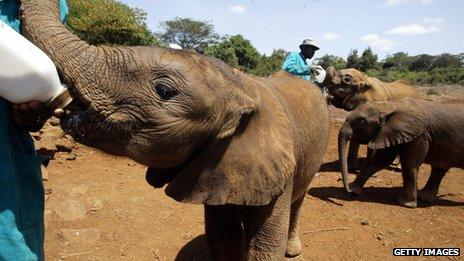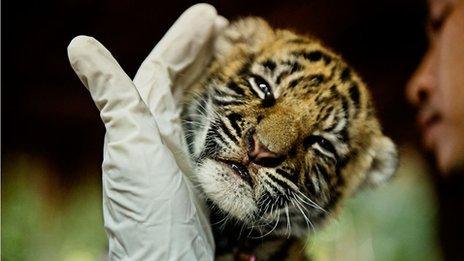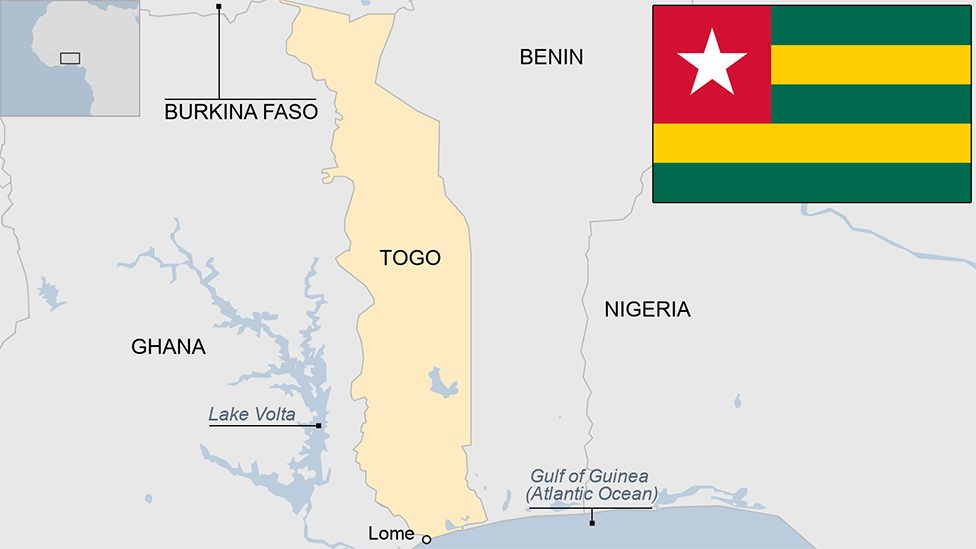Togo arrests 'ivory trade kingpin'
- Published
Hong Kong customs officers have confiscated elephant tusks worth more than $2.2m
A suspected Togolese ivory smuggler, Emile Edouwodzi N'bouke, has been arrested in the capital, Lome.
He was detained after 700kg (1543lb) of ivory was found at his shop by an anti-trafficking squad.
The BBC's Blame Ekoue says Mr N'bouke, known as "The Boss" in Lome, is considered by security agents to be a "kingpin" in Togo's ivory trade.
But Mr N'bouke denied any involvement in exporting illegal ivory and said he dealt in bone ornaments.
Our reporter says Togo has recently become a transit point for ivory dealers, who have begun to use Lome's harbour after finding access to other West African ports difficult.
Akoumassou Totchikpa, the head of Togo's Forestry and Fauna Commission, says most of the trafficked ivory comes from the West African sub-region, including Benin, Burkina Faso, Cameroon, Chad, Ghana and Ivory Coast.
In July, customs officials in Hong Kong seized more than two tonnes of elephant tusks worth $2.2m (£1.6m) hidden in cargo from Togo.
They said it was their largest seizure since 2010, and was likely to have come from baby elephants.
Togo has only 60 elephants living in protected national parks, our reporter says.
'Chinese clients'
Togo's Environment Minister Dede Ahoefa Ekoue said the arrest of Mr N'bouke proved the country was taking the problem of ivory trafficking seriously.
"I am proud… that Togo is showing the world that… we are going to continue this fight against the dealers who are destroying our natural resources," she told the BBC's Focus on Africa programme.
The anti-trafficking squad seized five or size tusks from Mr N'bouke's shop where he sold other ornaments made from animal bones.
Col Yao Kondi, head of the squad, said Mr N'bouke was a "kingpin" in the ivory trade and the unit's investigations would continue into its trafficking.
After his arrest on Tuesday night, some journalists were allowed to question Mr N'bouke, 58, at the headquarters of the anti-trafficking squad.
He said that his main clients were in China, and he had imported ivory with permits from Chad since 1983, when it was legal to do so.
But since recent treaties preventing the trade in ivory he had only exported handicrafts made from bones, he said.
The Togolese government banned trade in ivory in 2008.
Our correspondent says Mr N'bouke is expected to appear in court next week.
Those who offend against Togo's laws on protected species can face between 10 months and three years in prison, our reporter says.
- Published12 April 2012

- Published12 December 2012

- Published21 May 2024
